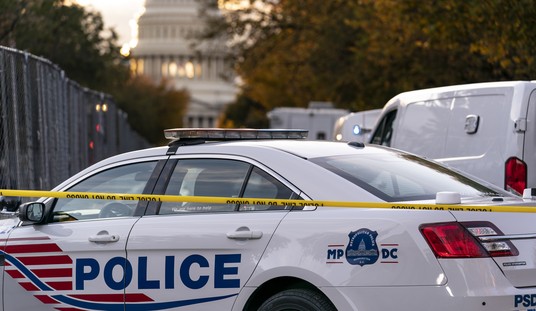By now you have likely already heard the details coming out of the soon to be former Sigma Alpha Epsilon fraternity at the University of Oklahoma. A group of frat members on a bus were caught on film singing a song so blatantly racist and offensive that there as nearly instant and universal condemnation of the members involved. The frat was ordered shut down yesterday and everyone had to evacuate the premises.
The president of the university, David Boren, told multiple reporters that he would be looking to suspend or expel the students seen in the video … if he was allowed. That struck me as rather odd the first time I heard it. Given the stain on the reputation of the school, wouldn’t that be almost automatic? As it turns out, in less than a day we had our answer. We won’t know for a while yet if it will stick, but two of the students were already expelled.
Two University of Oklahoma students who led the singing of a racist chant that was recorded and posted to social media have been expelled.
The students “created a hostile learning environment for others,” a statement from the university read.
University president David Boren made the announcement in a tweet which included a link to a larger statement detailing his reasoning.
The reason I mention that it might not stick comes from questions raised in advance by experts. While we were awaiting a decision, one of our favorite experts when it comes to the law, Eugene Volokh, opined that ejecting these singers might be harder than I had thought.
Oklahoma University president David Boren said, “If I’m allowed to, these students will face suspension or expulsion.” But he is not, I think, allowed to do that.
1. First, racist speech is constitutionally protected, just as is expression of other contemptible ideas; and universities may not discipline students based on their speech. That has been the unanimous view of courts that have considered campus speech codes and other campus speech restrictions — see here for some citations.
2. Likewise, speech doesn’t lose its constitutionally protection just because it refers to violence — “You can hang him from a tree,” “the capitalists will be the first ones up against the wall when the revolution comes,” “by any means necessary” with pictures of guns, “apostates from Islam should be killed.”
I’ve abbreviated Volokh’s full explanations, so click through for the entire tour, but those are the two main points. The second one – regarding speech which refers to violence in a general way – is modified to say that a student could definitely be suspended for a credible threat to a specific individual, just not a general reference. He also raises the question of whether or not the evidence could point to a pattern of discrimination at the fraternity for admissions, but that would still really deal only with the frat, not enrollment at the college.
This is one of those areas where I think the law quickly becomes confusing to laymen such as myself. It was my understanding that freedom of speech on campuses was fiercely protected under the law, but that such questions generally were applied to publishing unpopular, controversial or even hateful things in the student run newspaper, or wearing shirts, carrying protest signs, etc. Further, I had been under the impression that you were generally protected from the government – specifically from arrest or other official retribution – but that real world consequences could come from speech. (Just look at the number of people who have been fired for saying stupid or hateful things on social media.)
Colleges seem to have nearly unlimited power in such matters, sometimes to the detriment of their students. They have shown that they can kick out a kid who is, for example, accused of some form of sexual assault or harassment, without there ever being a trial, say nothing of a conviction. In a case like this, it would seem as if they have ample grounds to say that the students singing that song have caused damage to the school’s reputation and don’t represent the values they claim to espouse. You can be fired from your job for doing something like this but you can’t be suspended from school?
For the time being, at least, it seems that you can. But if Volokh is correct (and he generally is) the students might have a case to try to force the school to reinstate them. Of course, that also depends on if they really want to show their faces on campus again.








Join the conversation as a VIP Member